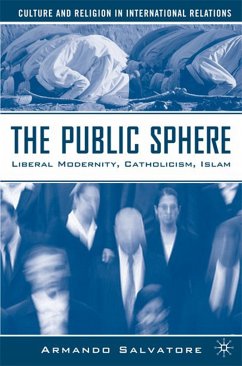
Utopias
A Brief History from Ancient Writings to Virtual Communities

PAYBACK Punkte
19 °P sammeln!
The term utopia typically conjures up naive, impractical, and superficial notions of a perfect society. This book offers a less stereotyped and more complex view of utopias - of their history, their varying manifestations, and their reflection of the societies from which they hail. Segal connects past to present utopianism, from the first utopias in ancient Greece, through their flourishing in the Renaissance to the famous 'dystopias' of Orwell, Huxley, and Zamyatin in the twentieth-century, and right up to present-day high tech and virtual utopias. The book explores the many genres in which...
The term utopia typically conjures up naive, impractical, and superficial notions of a perfect society. This book offers a less stereotyped and more complex view of utopias - of their history, their varying manifestations, and their reflection of the societies from which they hail. Segal connects past to present utopianism, from the first utopias in ancient Greece, through their flourishing in the Renaissance to the famous 'dystopias' of Orwell, Huxley, and Zamyatin in the twentieth-century, and right up to present-day high tech and virtual utopias. The book explores the many genres in which utopianism has expressed itself - prophecies and oratory, writings, political movements, world's fairs, physical communities, and cyberspace communities. The book shows that, far from an exclusively Western enterprise, utopias have been worldwide, appearing in regions such as Latin America and Asia. With the current strong interest in utopias, now conceived as cyberspace paradises or as the result of high-tech advances, this book offers a timely appraisal of the joys and pitfalls of utopian thought.












